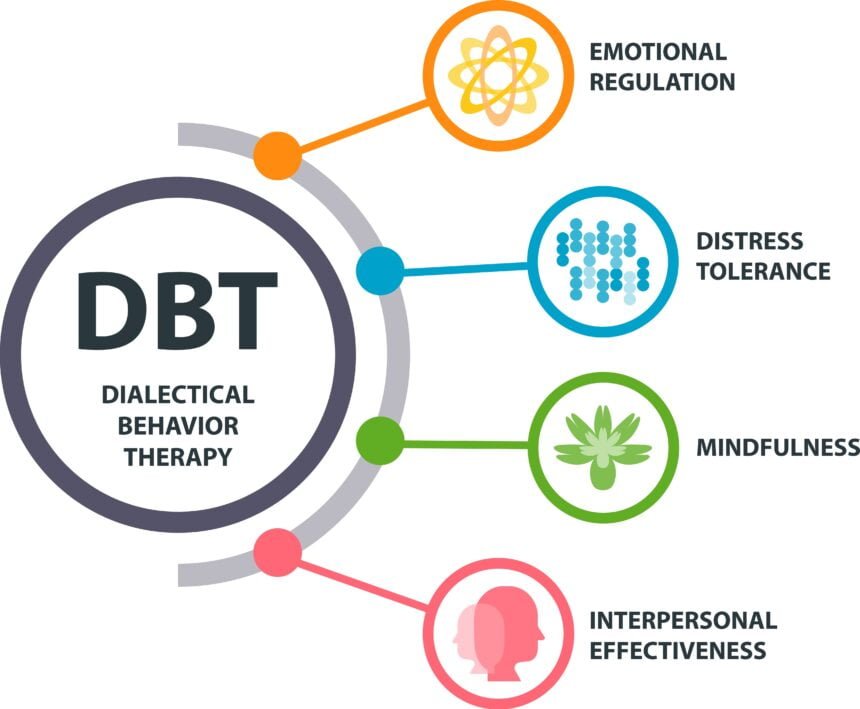In today’s fast-paced and constantly changing world, it is not uncommon for people to struggle with managing their emotions and coping with distress. This especially rings true for mental health disorders or long-term illnesses. Healthcare professionals recognize the importance of teaching effective coping techniques and techniques to bolster distress tolerance. One of the techniques that has gained popularity in recent years is Dialectical Behavior Therapy (DBT). This therapy is designed to help individuals build more effective problem-solving skills, manage their emotions more effectively, and develop stronger distress tolerance. In this article, Sherief Abu-Moustafa explores what DBT is, how it works, and why healthcare professionals recommend it to their patients.
1. What Exactly Is Distress Tolerance And Why Is It Important For Mental Health
Distress tolerance is a psychological term that describes a person’s ability to manage difficult emotions and situations. It is crucial for mental health as it determines how well we handle life’s inevitable challenges. Distress tolerance can be developed through various techniques, including mindfulness, relaxation exercises, and cognitive restructuring. By improving our distress tolerance, we can better manage situations that would otherwise feel overwhelming. This can lead to an increase in positive mental health outcomes such as reduced anxiety and depression. It’s worth noting that distress tolerance is not about avoiding or suppressing emotions entirely but rather developing the skills to manage them healthily. With practice, anyone can improve their distress tolerance and lead a happier, more fulfilling life. DBT is a form of psychotherapy that helps people struggling with distress tolerance to build the necessary skills to manage overwhelming emotions and stressful situations.
2. What Is DBT?
Dialectical Behavior Therapy, commonly known as DBT, is a psychotherapy developed in the 1980s. This therapy aims to assist individuals who have borderline personality disorder, show suicidal tendencies, or have self-harming behavior. In modern times, DBT has become a widely used treatment option for various mental health conditions. These disorders include depression, anxiety, substance abuse, PTSD, and bipolar disorders. The primary focus of DBT is on the cultivation of four fundamental components. These components include mindfulness, emotional regulation, distress tolerance, and interpersonal effectiveness. With a professional and effective approach, DBT has helped several individuals gain a better perspective on their life and mental health.
3. How Does DBT Work?
Dialectical Behavior Therapy (DBT) is an evidence-based treatment often used to help individuals struggling with various psychological disorders. Typically conducted in individual and group settings, DBT involves three to six months of weekly therapy sessions. During these sessions, trained therapists work closely with clients to help them improve their distress tolerance and learn new coping mechanisms. By working collaboratively with their therapist, clients develop specific skills for each of the four core components of DBT. These skills are then applied through homework assignments and daily practice. Ultimately, DBT is designed to help individuals learn to live mindfully, cope with distress more adaptively, and communicate more effectively with others.
4. Why Do Healthcare Professionals Recommend DBT?
DBT is an effective therapeutic modality that healthcare professionals increasingly recommend to their patients. It is backed by clinical research, demonstrating its evidence-based effectiveness in reducing various issues, including self-injury, suicide attempts, and symptoms of depression and anxiety. Healthcare professionals recognize the need for an individualized approach to therapy and appreciate how DBT emphasizes non-judgmental and compassionate collaboration. With DBT, patients can develop lasting skills to improve their quality of life. Its approach empowers individuals to take charge of their emotional well-being with targeted and effective strategies that persist beyond the therapy sessions.
5. DBT Is Considered A Holistic Approach To Psychotherapy
In summary, DBT is a holistic approach to psychotherapy that teaches individuals how to manage their emotions, cope with distress, and build effective problem-solving skills. This evidence-based treatment has stood the test of time and has shown remarkable efficacy in addressing various mental health disorders. Healthcare professionals advocate for DBT because of its compassionate and collaborative nature. It is tailored to meet each patient’s unique needs, recognizing that everyone’s journey differs. In a world where mental health is paramount, DBT is an invaluable resource for those seeking personal growth and lasting change. Its emphasis on acceptance, validation, and self-compassion creates a nurturing environment that fosters healing and transformation. Whether someone struggles with anxiety, depression, borderline personality disorder, or other mental health conditions, DBT provides a path toward a more balanced and fulfilling life.
Conclusion
Dialectical Behavior Therapy is a valuable modality for individuals struggling to manage their emotions and develop distress tolerance. It is an evidence-based approach that effectively treats various mental health disorders. Healthcare professionals like Sherief Abu-Moustafa recognize the value of teaching their patients DBT skills and helping them achieve their goals. With DBT, individuals can learn to be more effective problem-solvers, manage their emotions more effectively, and develop stronger distress tolerance, ultimately improving their overall quality of life.








